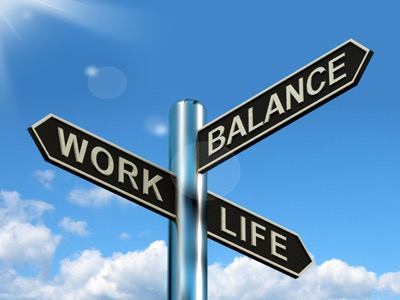
The expectation for staff to stay at their desks after their working hours has increased significantly over the years, so its no surprise that there’s been a surge in mental health related problems in the workplace.
With people working longer, stress and anxiety are becoming more prevalent work and related stress is costing Britain 10.4 million working days each year. But it doesn’t have to be that way.
Ahead of National Work-Life Week, which is taking place from 2 – 6 October 2017, we’ve spoken to the experts to find out the secrets behind achieving the perfect work-life balance:
Make that change and STICK to it!
What is the perfect work-life balance? It will be different for everyone and all we appear to do is aim to achieve it, without actually getting anywhere. Margo Manning, a Management Coach highlights that you need to give something up in order to take something on, and the crucial part is committing to this change. Wanting more money often means less time away from the office, and wanting more down-time often results in less money. Achieving a work-life balance is all about knowing you need to give something up, but it’s what you give up (and sticking to it) that’s the hard part. Margo expresses that it’s also about understanding and managing when things get in the way. The emergency at work that means you have to stay late, or the early morning meeting that you have to rearrange due to child care, having a work-life balance is about compromising and being flexible for both yourself and for the company.
Find YOUR rhythm
Healthy routines are key to being efficient and productive. Routines such as meal plans, and planning ahead what you are going to wear for work mean you have more time and energy to focus on the important tasks, whilst giving you rhythm to your day. Karen Meager and John McLachlan, co-authors of Time Mastery suggest that having specific times of the day to sort your emails and file your paperwork can prove to be a huge time saver and means you avoid getting stuck at your desk doing meaningless jobs. However, they also highlight that sometimes variety and choice can bring joy to your day, in which case keep it, and plan the aspects of the day you find monotonous and dull. It’s about finding your own rhythm.
Switch ON, then switch OFF!
One of the biggest struggles for employees when working from home is their ability to switch off after 5pm. A lot of people may keep their laptops switched on to reply to emails as and when they come through, but this is fatal. Stephen Fortune at The Oxford Group suggests that members of a virtual workforce need to have high levels of productivity during the working day, to allow them to switch off when their families come home. In order to do this, Stephen believes you should keep a clear head and focus only on the task at hand. Not getting distracted by household tasks during the day, or by emails in the evenings when you are relaxing with family or friends.
Leave the Hangover at Home
Don’t lose valuable time and concentration on Monday mornings after a heavy weekend of drinking or partying. By drinking less or switching to a non-alcohol alternative on nights out means you can wake up feeling fresh and ready to start the week with a clear head. Non-alcoholic drink Botonique contains special nutrients which actually replenished your body and replace those that alcohol depletes, ensuring you’re not left feeling worse for wear on Monday mornings. Hilary Marsh, Botonique founder and former wine merchant recommends mocktails as a great way of getting in the party mood without having the dreaded hangover the next day allowing you to feel productive and not waste time in the office.
Take your Leave
Recent years have seen a sharp rise in the number of UK Staycations, because of the flexibility and lower cost. “Part of having a good work-life balance is about giving yourself time to rest and recuperate. Being on the go all the time and not taking holiday, even its just a long weekend every now and then, is a guaranteed route to emotional and physical burnout,” explains Sally Burrell from Belle Aire Holiday Park in Norfolk, who has noticed a sharp increase in the number of enquiries from people looking to switch their summer sun holidays abroad to shorter, more frequent UK staycations instead.
Mind over Matter
Although this may come as a surprise to many, working harder than everyone else doesn’t always mean you’ll get the most money! In his recent whitepaper, Nathan Fuller from Kite Consulting Group suggests that it is actually your attitude that makes the biggest contribution to your salary level. “Your ability to earn more money is largely defined simply by your willingness to be assertive, authoritative and strong willed,” he says. So no matter how late you stay in the office or how many lunch breaks you work through, it is your attitude that will get you further.
Don’t sacrifice relationships and emotional wellbeing
In the fast paced working environment of the 21st century it can be easy to become stressed, overwhelmed and overworked and technology means many people can and do work 24/7. What’s more worrying is some organisations now expect their employees to be available at any time. That is why it is even more important than ever to consider your emotional wellbeing and the impact your work life pattern is having on any personal relationships. Rick Sharpe, author of ‘The Price of Heart Break’, urges that despite external pressures, it is vital to keep a clear division between work time and family time in order to preserve relationships and a healthy home life. “Making time for activities you enjoy is also extremely important to personal wellbeing and a hobby outside of work can be a great way to boost mood and release energy,” adds Rick.








